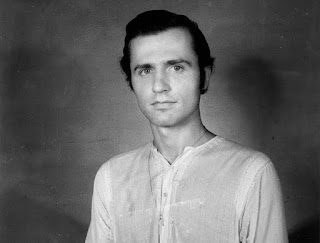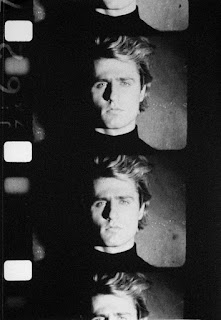Fifty years ago Ramón Novarro was found dead by his male secretary. It was a grisly scene. Novarro was naked and bound. He had been beaten about the face. One of his broken teeth was later found on the bedroom floor of his Laurel Canyon home by investigators, having been knocked out of his head by the force of blows.
It was 1968, a very pivotal year in the history of the United States. The war in Vietnam had dragged on for years by then, wearying the public. The Tet Offensive in January of that year would smash the pretense of any kind of victory being possible on that embattled peninsula. Both Robert Kennedy and Martin Luther King would be assassinated. The nation itself would declare its first postwar debt due to the combined space race with the Russians and the cost of the war in Vietnam. With chants of "
the whole world is watching" as police attacked demonstrators during the Democratic National Convention in Chicago, protesters came to realize the power of the media as a voice of the dispossessed.
By the late sixties Novarro was a forgotten star, he was an anachronism. He was overweight and suffered from emphysema after years of smoking. His gardening bills proliferated. His house ledger was littered with hires and money spent on 'lawn work', but it was really code for rent boys. The boys that did call on his address remarked that he was a nice old man and a soft touch when it came to indulging them with a bit of extra money. Having been born in 1899 he was of course deep in the closet, at least on the surface. He was discreet and careful with his public persona, as much as it had been stained by a few drunk driving offences over the years. To his credit, though, he was honest enough to refuse a studio-engineered marriage and remained a bachelor all his life. He was also extraordinarily devout, but had a hard time reconciling his desires with his faith. Drunken oblivion removed the inhibitions. It was a year before Stonewall.

During the trial of the boys accused, the argument of 'Homosexual Panic' would be used to frame Novarro as the instigator. It is now a defunct defense, considered at best these days as merely a temporary reaction to sexual advances. Victim blaming, especially of a dead victim not able to speak for himself, is nothing new. It would be years before the American Medical Association would scrub their books (and the DSM) of the idea that being gay was anything other than something bred in the bone.
For what became the 'Halloween murder of Ramon Novarro', both young men would spend less than 10 years in prison. One, Paul Ferguson, is still alive, languishing for other crimes and unlikely to be released. His brother, Tom, killed himself some years ago. The question of Tom being under age at the time (he was 17) was used against Novarro, but it was the older brother Paul who followed Novarro to the bedroom. Tom sat in the living room during the beating and pleading, talking to his girlfriend long distance on Novarro's dime.
Novarro was blamed for being drunk, and this fact was one used by Paul Ferguson to justify his death by misadventure. But he was left on his back by the boys, and he aspirated and suffocated on his own blood. Had he been laid on his side he may have survived, but of course there is no telling.
Paul Ferguson, Kris model and defendant
I think Novarro's death was one of those events that foreshadow a changing time. Just a year later the Tate-Labianca murders would explode in the headlines, and send California and the United States headlong into the twisted present, where gruesomeness is now common fodder. The old systems were falling away and 1968 marked the beginning of a change in American culture. It is fitting then that Novarro himself represented a quainter time, if not in real life at least then on the screen. On screen, his was a Potemkin-like chivalry and a gentleness characteristic of all of us Nancy Boys. Blurred with alcohol, and very vulnerable, he had opened his door unwittingly to a pair of wolves stalking this new terrain.
If there is anything to be learned from all these big swipes I take at history, Hollywood, and the echoes of 1968 that I see being repeated in the present, I think the best thing to do is quote Henry James. He said, "Three things in human life are important. The first is to be kind. The second is to be kind. And the third is to be kind." Smelling blood, wolves by their nature are none of these.








































































